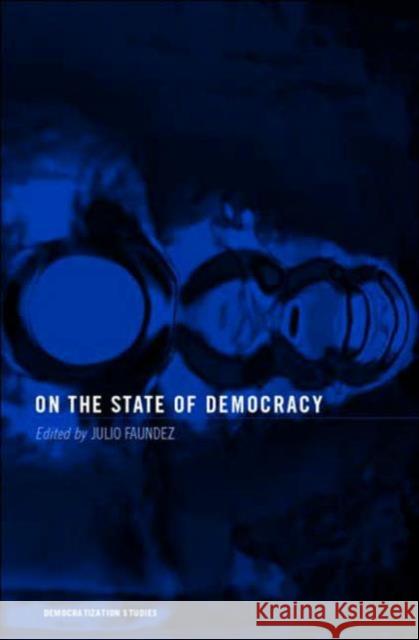On the State of Democracy » książka
On the State of Democracy
ISBN-13: 9780415414203 / Angielski / Miękka / 2006 / 240 str.
On the State of Democracy
ISBN-13: 9780415414203 / Angielski / Miękka / 2006 / 240 str.
(netto: 167,53 VAT: 5%)
Najniższa cena z 30 dni: 161,14
ok. 16-18 dni roboczych.
Darmowa dostawa!
This stimulating new international study of the state of democracy today contributes towards improving and deepening our understanding of the democratic process, both in new and old democracies. It brings together a leading group of international experts in the fields of politics, economics, sociology, journalism, anthropology and law. It covers key themes that have a bearing on the quality and sustainability of democratic practices and relates them to policies in specific countries or regions. A special concern of the book is to identify and evaluate policies aimed at securing improvements in democratic practices. Most countries in the world today have embraced democracy. The rise of democracy has strengthened support for human rights and is making possible the resolution of many conflicts through political and legal means. In many countries, however, the state of democracy is a cause of concern. Countries that have recently become democratic are often unable to satisfy elementary social and economic aspirations of their citizens and many continue to restrict basic civil and political freedoms. Voters' apathy, distrust of politicians, media manipulation and corruption are issues that also trouble citizens in old established democracies. This book was previously published as a special issue of Democratization.
This stimulating new international study of the state of democracy today contributes towards improving and deepening our understanding of the democratic process, both in new and old democracies. It brings together a leading group of international experts in the fields of politics, economics, sociology, journalism, anthropology and law. It covers key themes that have a bearing on the quality and sustainability of democratic practices and relates them to policies in specific countries or regions. A special concern of the book is to identify and evaluate policies aimed at securing improvements in democratic practices.
Most countries in the world today have embraced democracy. The rise of democracy has strengthened support for human rights and is making possible the resolution of many conflicts through political and legal means.
In many countries, however, the state of democracy is a cause of concern. Countries that have recently become democratic are often unable to satisfy elementary social and economic aspirations of their citizens and many continue to restrict basic civil and political freedoms. Voters’ apathy, distrust of politicians, media manipulation and corruption are issues that also trouble citizens in old established democracies.
This book was previously published as a special issue of Democratization.











